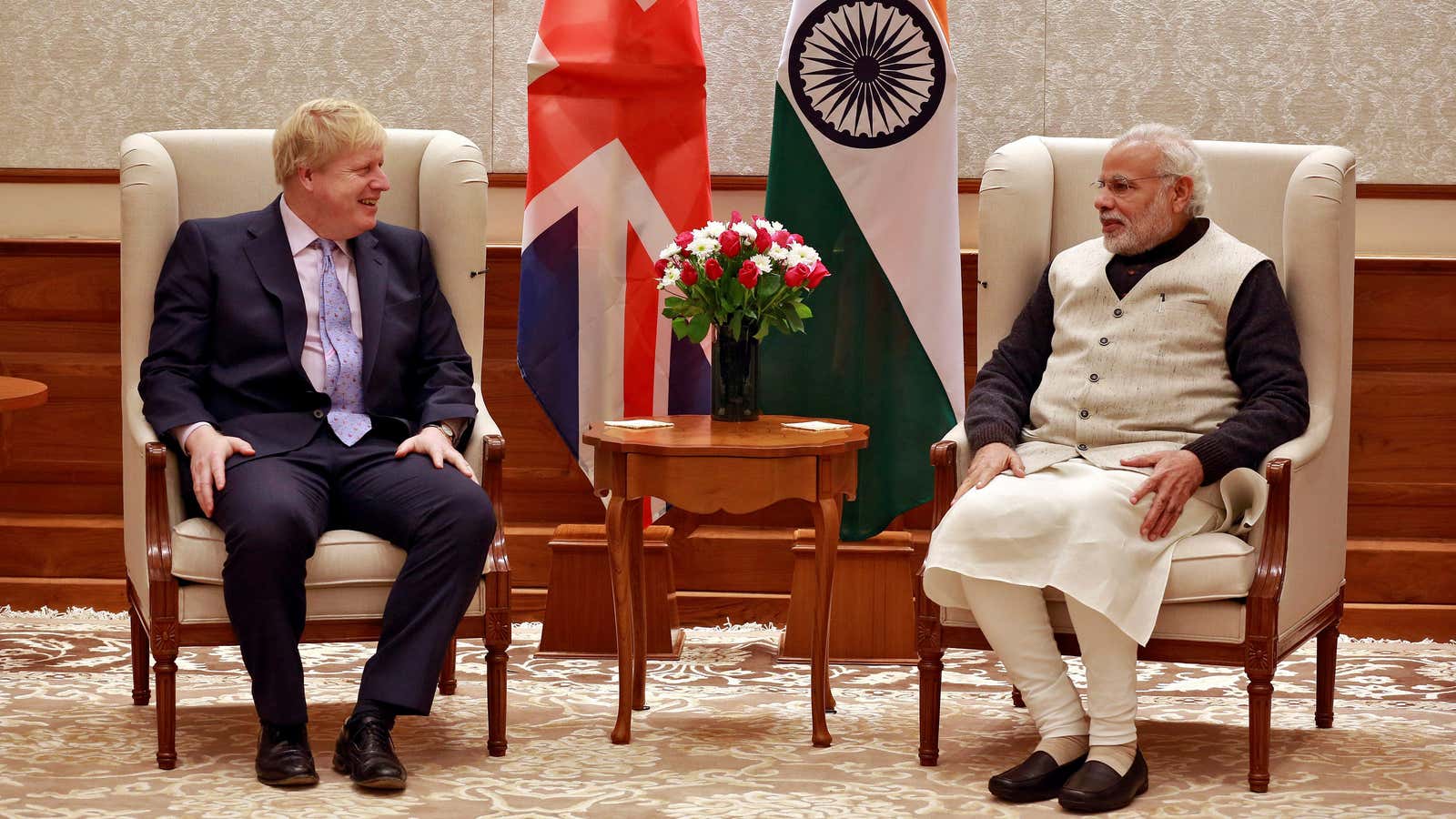UK prime minister Boris Johnson canceled a state visit to India for the second time because Covid-19 cases there have spiraled out of control, and most travelers from India are now banned from entering the UK.
The UK wants to sign a free trade agreement with India soon, and the visit was meant to be Johnson’s first outside of Europe since Brexit. Now, it won’t happen. Savvy work-from-homer that you are, you might be wondering, if this meeting is so important, why not just do it virtually? In fact, Johnson and Indian prime minister Narendra Modi are scheduled to speak on the phone “later this month,” and “will remain in regular contact” before getting together later this year—but experts say that virtual statecraft is a poor substitute for in-person contact.
While remote work has lots of benefits in many industries—from mitigating climate change to forcing employers to innovate—two factors make virtual diplomacy ineffective, according to a paper written by Tristen Naylor, an expert in international relations from the London School of Economics. He writes that virtual summits remove the pageantry and rituals that set these kinds of events apart from the day-to-day of politics, and makes them feel urgent and important to the participants.
He also argues that “moving online eliminates the opportunities for inter-moments,” meaning the “brush-bys, pull-asides, and walk-and-talks—moments in which leaders can advance towards their foreign policy objectives in ways that would otherwise not be possible.”
It’s not like all diplomacy has stopped since the pandemic began. The EU, for example, agreed to the terms of an investment agreement with China at the end of last year through a series of virtual meetings. But the negotiations for the deal had started eight years earlier so the parties knew each other and were working off an existing base.
As anyone who has suffered through accidental muting and unstable video connections knows, a lot can get lost in translation virtually, including body language and situational context. Conversations can feel more stilted and politicians may fear that someone is listening in. That’s especially relevant when meeting participants already have reasons to distrust each other.
Kerry Brown, a former British diplomat in Beijing, worked on Chinese president Jiang Zemin’s 1999 state visit to the UK. During that visit, Prince Charles declined to attend a dinner with Jiang, in what the press interpreted as a criticism of China’s policies in Tibet. Incidents like those have the potential to blow up during state visits, which Brown calls “about as relaxing as having your tongue ripped out.” Still, he says, “the ones that work can deliver transformative change.”
He points to US climate envoy John Kerry’s recent visit to China. In the middle of historic US-China tensions, Kerry was able to secure a commitment from the Chinese to work with the US to tackle the climate crisis. “They’re one in 100,” says Brown of these kinds of visits, ”but they’re worth it.”
